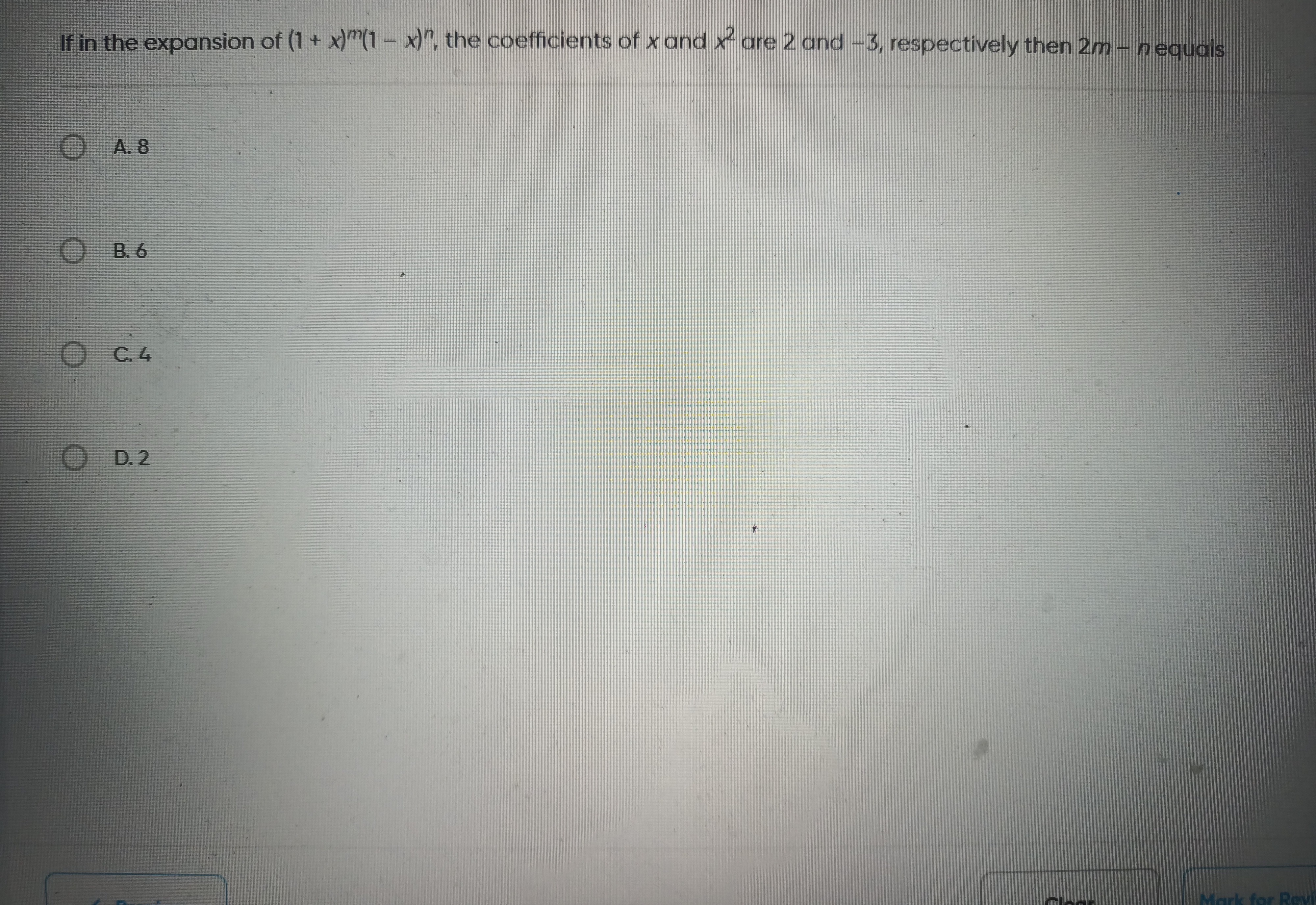Question
Question: If in the expansion of $(1 + x)^m(1 - x)^n$, the coefficients of x and $x^2$ are 2 and -3, respectiv...
If in the expansion of (1+x)m(1−x)n, the coefficients of x and x2 are 2 and -3, respectively then 2m−n equals

8
6
4
2
8
Solution
To find the value of 2m−n, we first need to determine the values of m and n using the given information about the coefficients of x and x2 in the expansion of (1+x)m(1−x)n.
The binomial expansions are: (1+x)m=1+mx+2!m(m−1)x2+O(x3) (1−x)n=1−nx+2!n(n−1)x2+O(x3)
Now, let's multiply these two series to find the terms up to x2: (1+x)m(1−x)n=(1+mx+2m(m−1)x2+…)(1−nx+2n(n−1)x2+…)
To find the coefficient of x: Coefficient of x=(1)(−n)+(m)(1)=m−n
Given that the coefficient of x is 2, we have: m−n=2(Equation 1)
To find the coefficient of x2: Coefficient of x2=(1)(2n(n−1))+(mx)(−nx)+(2m(m−1))(1) Coefficient of x2=2n(n−1)−mn+2m(m−1)
Given that the coefficient of x2 is -3, we have: 2n(n−1)−mn+2m(m−1)=−3 Multiply the entire equation by 2 to clear the denominators: n(n−1)−2mn+m(m−1)=−6 n2−n−2mn+m2−m=−6
Rearrange the terms to group m2,−2mn,n2: (m2−2mn+n2)−(m+n)=−6 This simplifies to: (m−n)2−(m+n)=−6
Substitute the value of (m−n) from Equation 1 into this equation: (2)2−(m+n)=−6 4−(m+n)=−6 m+n=4+6 m+n=10(Equation 2)
Now we have a system of two linear equations:
- m−n=2
- m+n=10
Add Equation 1 and Equation 2: (m−n)+(m+n)=2+10 2m=12 m=6
Substitute the value of m=6 into Equation 1: 6−n=2 n=6−2 n=4
Finally, we need to calculate 2m−n: 2m−n=2(6)−4 2m−n=12−4 2m−n=8
